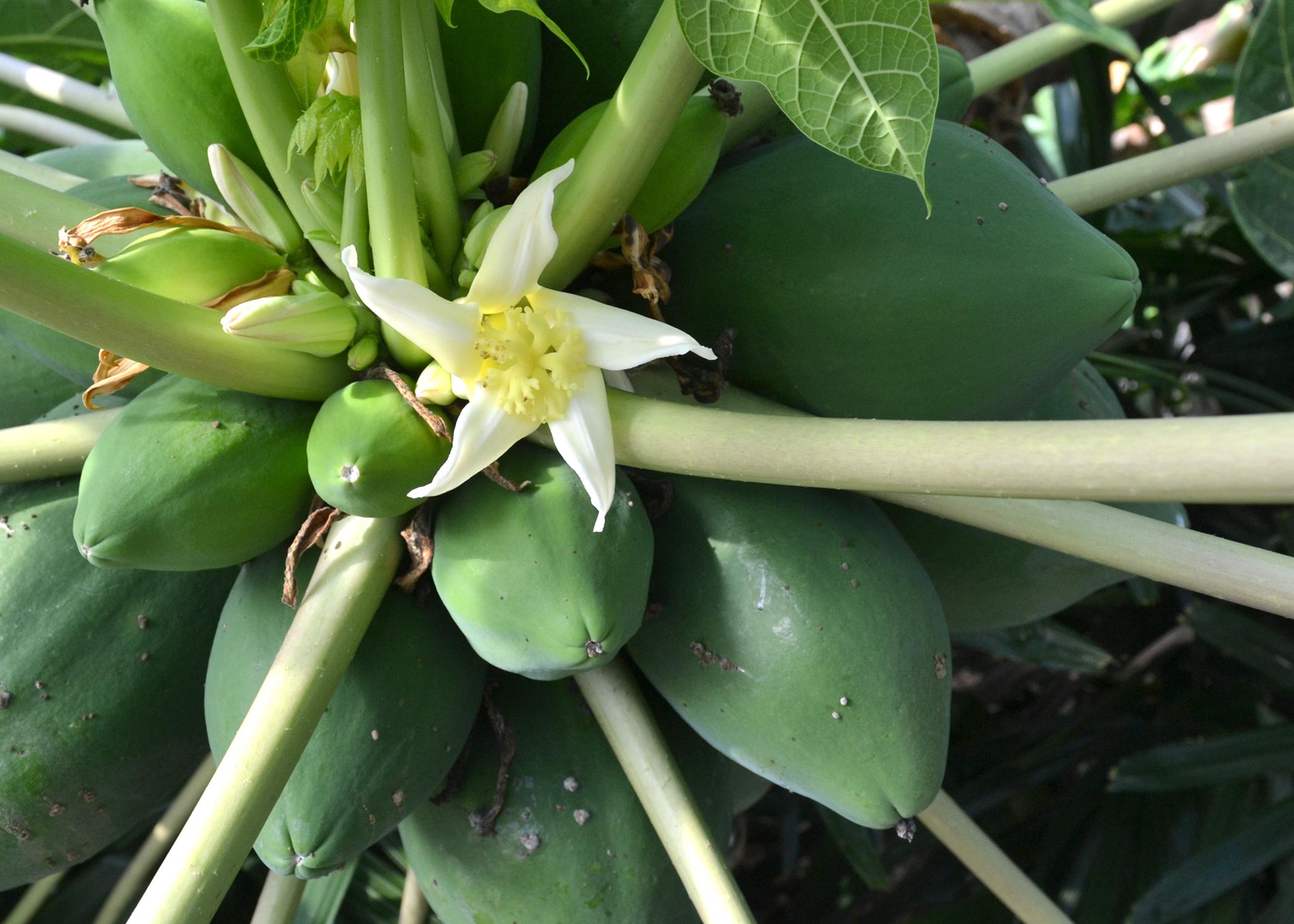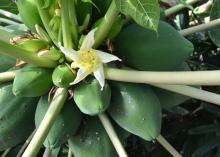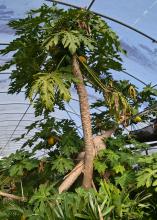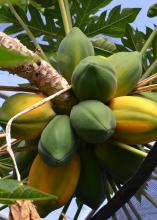Papaya trees add fruit, tropical look to gardens
I recently came across a remarkable papaya plant thriving since 2014 inside a greenhouse, and it has now grown into a productive tree.
This tree growing at Pine Hills Nursery in Pass Christian, Mississippi, even has a name -- “Penelope the Papaya.” She continues to grow there today, flourishing and yielding an abundance of golden-orange fruit annually.
Papayas are fast-growing tropical trees, capable of reaching 10 to 15 feet tall within just a couple of years. They feature a single, unbranched trunk topped with a crown of large, deeply lobed, palmate leaves that can grow up to 3 feet wide.
Papayas’ lush foliage creates an exotic feel wherever the plants are grown.
These fruit trees thrive in warm, tropical to subtropical climates, making them well-suited for coastal Mississippi’s mild winters. Because papayas are highly sensitive to cold, they need protection from frost.
In areas where temperatures occasionally drop near freezing, I advise growing them in containers and bringing them indoors. You can also use frost blankets and other protective measures during cold spells.
Papaya trees produce clusters of waxy, trumpet-shaped flowers that range from creamy white to pale yellow, often with a subtle fragrance that attracts pollinators.
And pollination is a crucial factor to consider.
Some papaya varieties are dioecious, meaning male and female flowers grow on separate trees. With dioecious varieties, you must have both male and female trees to have fruit production. Others are hermaphroditic, producing self-fertile flowers that can set fruit independently.
When selecting papaya plants, make sure you have the right type to ensure fruit yield.
The fruit itself is elongated and ripens from green to shades of yellow, orange or even reddish hues when fully mature. Beneath its thin, slightly bumpy skin lies juicy, fragrant flesh with a buttery texture. The flavor is like a blend of melon and mango with tropical floral undertones.
Inside the fruit, a central cavity is filled with small and round black seeds encased in a gelatinous coating. These seeds are edible and have a slightly peppery taste.
Papaya trees require full sun, well-draining soil and consistent moisture to support their rapid growth. As heavy feeders, papayas benefit from regular applications of a balanced fertilizer rich in nitrogen, phosphorus and potassium. This promotes healthy foliage and abundant fruiting.
With the right care, papayas like Penelope can remain productive for several years, providing a steady supply of delicious, nutrient-rich fruit loaded with vitamins A and C, antioxidants and digestive enzymes. Their fast growth, striking form and generous fruit production make them an invaluable addition to warm-climate gardens.






